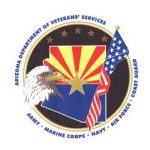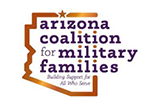Statement of the Arizona Coalition for Military Families Before the U.S. Senate Committee on Veterans' Affairs
Hearing on VA and DoD Collaboration: Improving Outcomes for Service Members and Veterans
Statement by Thomas R. Winkel, Director, Arizona Coalition for Military Families
November 3, 2021
Thank you Chairman Tester, Ranking Member Moran, Arizona Senator Sinema, and members of the Committee for Veterans’ Affairs for inviting me to speak today.
As a veteran, I am heartened by the question before this Committee. Why? Because in Arizona we have incredibly strong, nationally recognized partnerships with the VA, military installations, the Arizona Department of Veterans’ Services, and the community and through that we have built our Ecosystem of Support to do what none of us could do alone. It is my strong belief that every state’s service members, veterans, and their families should have the same sustainable, robust ecosystem as Arizona’s, or better!
In my 12+ years of working in this field I have seen the VA and DoD grow in their collaborative efforts with each other and the community and that growth in collaboration should be applauded. Public/private partnership can be key to addressing some of the most complex challenges facing service members, veterans and their families, including suicide, transitioning, finding meaningful careers or a new social support system, substance use, family violence and other tragic situations, or just simply getting the best out of post-service life.
So what does the VA and DoD need in order to accept the community as an equal partner? They need the legal authority and framework to partner and they need state and community partners that they can trust, have stability and use data driven approaches.
In Arizona, that partner for the VA and DoD is a collective impact initiative called the Arizona Coalition for Military Families.
Here are some examples of how VA and DoD have partnered effectively with our state and community:
From 2008 – 2010, the Arizona National Guard had three consecutive years of the highest number of deaths by suicide in the history of the organization. The Coalition was asked to assist with a solution based on the belief that suicide is preventable. Through the implementation of a comprehensive support program that included the VA and other vetted community partners, there were zero suicides for the three years the program was in operation.
In 2016, the Clay Hunt Suicide Prevention Act opened a door for the VA to collaborate with the community in a more comprehensive way. Arizona was a pilot program state and with support from the VA, state and other community partners, we created the Be Connected© Program, which uses the lessons learned with the success of the National Guard program for a statewide focus on all 500,000+ service members, veterans and their families. This includes all veterans, including those who are not connected to the VA. Appreciation goes to the late Senator McCain and Senator Sinema for their support of this effort.
In 2018, all five of our Active Duty Bases and other key stakeholders signed a DoD Skillbridge Program MOU. The result is that an average post-SkillBridge salary for our program participants is over $70,000/year because we intensively cultivate effective matches between employers and service members and educate employers and for-profit Skillbridge Placement companies to not view SkillBridge as free labor for low-skilled positions. We are currently working on additional agreements to more fully support Transition Assistance Programs with Luke Air Force Base leading the way.
The three VA Health Centers, the Arizona Department of Veterans’ Services, and the Arizona Coalition for Military Families all have designated Be Connected staff to increase continuity of care.
An overall positive effect of this public/private partnership is that the Directors of our three Arizona VA Health Care Systems have shared that the statewide partnership fostered by Be Connected© helped them work more effectively with each other and relevant state agencies during COVID-19 because of the relationships built prior to the pandemic through this collaboration.
Partnership with DoD will expand further over the next three years as Arizona State University and the Coalition were awarded a DoD funded grant focused on cross-cutting prevention. This project will combine the National Guard program and Be Connected© models to create an adaptable program model that can address multiple areas of prevention in coordination with military entities.
These and literally hundreds of other examples are what we get when we include the community as an equal partner.
Path Forward
The VA and DoD should have an organization in every state that they can trust, that is stable and that is data driven. Fortunately, there is a collaboration already taking place that supports this.
SAMHSA and the VA have an effort called the Governor’s Challenge to Prevent Suicide Among Service Members, Veterans, and their Families. Governor Appointed State Teams, comprised of the military, government and the community, receive an extensive amount of technical assistance on best practices for upstream suicide prevention from nationally recognized subject matter experts. Arizona has been part of this project for over a decade now and it has been instrumental in galvanizing partners in our coordinated effort.
Given that we have this pathway available, I have a variety of recommendations in the supplementary materials I’ve provided, in particular the Empowering Veteran Communities – Be Connected Report. Here are some additional recommendations for consideration:
For the Senate:
- Authorize the DoD to update the Joint Ethics Regulations (JER) (DoD 5500.7-R) so they can engage more easily with established public/private partnerships.
For the DoD:
- Consider highlighting or adding policy that encourages Active Duty base commanders and their personnel to more intensively engage with Governor’s Challenge Teams.
- Add the Governor’s Challenge Teams efforts to the list of sanctioned public/private efforts so that base personnel from family programs, suicide prevention, and TAPs can more easily engage.
For the VA:
- Increase the emphasis on building collective impact initiative models and other similar structures to support the Governor Challenge Team efforts to implement the strategic plan they create.
- Please consider utilizing the Staff Sergeant Parker Gordon Fox Suicide Prevention Grant Program to fund the Governor Challenge Teams’ organization and programs.
- Increase the collaboration to include input on the Governor’s Challenge Grant process from the National Association of State Directors of Veteran Affairs – NASDVA.
- Utilize the CDC and CDC Foundation’s work with the State Scorecard, Vulnerability Index, and Warrior Built effort to assist the Governor’s Challenge Teams.
- Ensure that the great work of the VA Veterans Experience Office and in particular the Community Veteran Engagement Boards (CVEBs) are incorporated more fully into the Governor’s Challenge Teams efforts.
- Increase successful partnerships with qualified research institutions like Arizona State University, and Syracuse University’s Institute for Veterans & Military Families to track and report data for the Governor Challenge Teams.
I’d like to thank Governor Doug Ducey and his Governor’s Office of Youth, Faith and Family, and also the leadership of the Arizona Department of Veterans’ Services, VISN 22, Arizona’s three VA Health Care Systems and Regional Benefits Office for their ongoing partnership in supporting all service members, veterans, and family members.
Chairman Tester, Ranking Member Moran and members of the Committee, I appreciate the time to speak.








